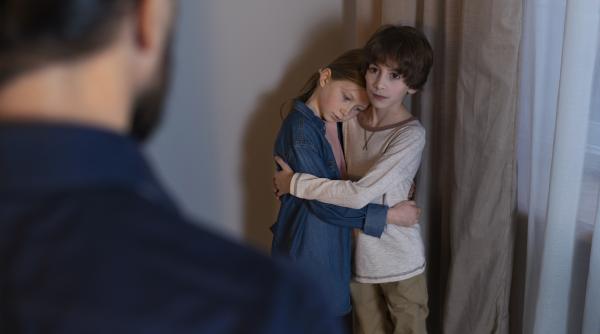Our children are growing up in front of screens that no longer tell stories but bombard them with avalanches of fragmented, absurd, fast-paced, and funny content. And the question raised by moderator Loredana Iriciuc on Părinți Prezenți comes as a wake-up call:
Can kids still think in sentences, follow a narrative, or understand a storyline if they’re fed only chaotic, repetitive clips?
Ana-Maria Zamfir: “We’re starting to see difficulties with willpower and motivation”
“Studies show there are emerging difficulties in areas like willpower and motivation”, explained Ana-Maria Zamfir, psychologist and psychotherapist, during the Părinți Prezenți show, produced by ParintisiPitici.ro.
When a child’s brain is repeatedly fed “something fast, easy, and effortless”, it trains itself to avoid effort altogether. It stops seeking depth, logical sequences, suspense, or the question: “What happens next?” Even stories filled with dragons, magic, or princesses struggle to compete with a bizarre video featuring a radiator mixed with a camel.
“When they receive this fast, effortless content, they learn not to put in any effort. Then it becomes harder to find motivation for work, to have the patience to listen to a story, or to follow the rhythm of a story that unfolds gradually with a coherent action.
Even though stories offer fantasy and imagination, it’s hard for them to compete with something like a radiator blended with a camel. It doesn’t surprise them enough to capture their attention, and that’s when difficulties arise. Still, there are quite a few kids who enjoy reading and still do it regularly. So I wouldn’t want to generalize”, added Zamfir.
Beyond the screen: The trap of effortless pleasure
“When I thought about how to talk about Brainrot, I tried to imagine what might come after smartphones”, said Ana-Maria Zamfir.
Technology is evolving at lightning speed, apps that seem cool today are outdated in 6 to 12 months. So what happens when nothing feels like enough? When everything has to be even faster, even funnier, even more chaotic?
“Technology isn’t just advancing, it’s doing something phenomenal. Experts say that an app like this, which doesn’t even require much development work, becomes outdated in 6-12 months. You’re expected to move on to something else that can do even more in the next few months.
So what’s left for us to do? Just watch funny stuff and sit back and feel good”, said Zamfir.
And that’s where the trap lies.
“This is a big trap, because this sense of happiness and pleasure, ironically, usually comes in contrast with something. It should come hand in hand with effort so that you can truly feel it. But if you spend all day in that zombie-like state, unaware, letting AI do everything for you—no more effort, no more learning, no more trying, that's when problems arise”, the expert explained.
“Let AI handle it. You just relax…”
Another danger is the belief that there's no point in trying anymore, since you can’t compete with AI anyway. So why learn? Why memorize? Why work?
“You can’t compete with AI, it stores way more information than even the smartest person could ever retain. That’s the message I see being promoted right now in society. Just enjoy yourself, relax, nothing really matters”, said Ana-Maria Zamfir.
And yet, the same voices telling you not to stress also deliver a conflicting message: be the best, compare yourself to others, innovate, bring something new to the table. This creates a cycle of constant stress, where the child (and the adult) feels like they’re never enough.
“On the one hand, you hear: relax, just be yourself. But then there’s this pressure to bring something to the table socially. ‘Come on, get to work, compare yourself, what new thing can you bring?’
And so, you end up in this self-perpetuating loop. A permanent state of stress where you feel like you can never really fulfill your purpose or be truly useful. That’s what I see happening around me—a strong desire for perfectionism mixed with constant self-criticism”, she added.
And we, adults, have lost our patience too…
“I noticed it in myself, after a busy, chaotic period, I seek out something very passive to unwind. And, regarding what you asked earlier about stories, I barely have the patience to sit through a full movie anymore.
So if I feel this way, what can I expect from a child raised and educated in today’s world, whose brain is wired for this kind of stimulation?” Ana-Maria Zamfir concluded.
Parents feel the same symptoms as children, but they can name them, recognize them. Kids just live them. They get irritable, bored, apathetic, or, on the flip side, hyperactive and unable to sit still for even a few minutes.



































